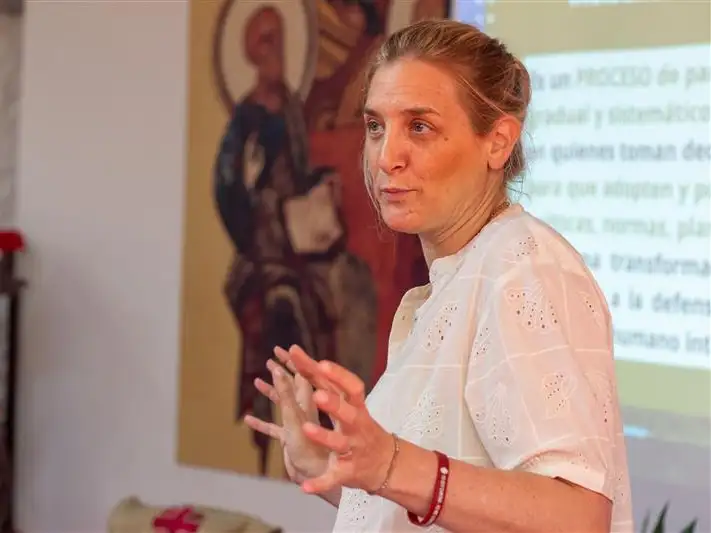Email the Energy Secretary
Send a message to Ed Miliband urging the UK to champion bold and urgent action at COP30.

With the 30th United Nations climate conference taking place in Brazil this November, Damiana Lanusse from Caritas Latin America and the Caribbean (SELACC) explains how spaces such as COP30 are key opportunities for joint action on socio-environmental justice.
The socio-environmental crisis is hitting Latin America and the Caribbean with particular severity – whilst being one of the world’s most vulnerable regions and amongst the least of the polluters.
Prolonged droughts, increasingly intense hurricanes and rising sea levels threaten food security, livelihoods, biodiversity and human dignity. Its impacts deepen historical inequalities, cause material, cultural and spiritual losses, and force thousands of people to migrate or be displaced.
This situation is further aggravated by an extractivist economic model that strips communities of their territories, criminalises those who defend them, and keeps many countries trapped in unjust debt that limits their capacity to respond fairly and effectively to the emergency.
Our participation in the COPs and related spaces has been recent but active and increasing. As the Latin American and Caribbean Secretariat, we have been present at COP16 on Biodiversity in Cali (Colombia), COP29 in Baku, and the intersessional meetings in Bonn in June 2025.
Despite the insufficient results delivered after more than three decades, we believe this path enables us to strengthen capacities and foster 'bottom-up' processes of influence. We value these spaces as key opportunities for joint action in favour of socio-environmental justice, with a long-term perspective.
In this synodal journey which combines training, advocacy and coordination, we have promoted ecclesial pre-COPs, produced advocacy materials, and we are helping to highlight community best practices.
We have also taken part in strategic gatherings, such as the ecumenical collaboration meeting of Christian leaders in Brasília (March 2025) and Climate Week (May 2025), alongside ecclesial, Christian and civil society actors.
Our objectives at COP30 are:
To advocate for climate action, fostering inclusive decision-making processes, and ensuring accountability from governments on their national plans to reduce emissions. Bringing the perspective of the Church into dialogue with other faith traditions and with civil society organisations that share the principles of justice, solidarity and care for our common home.
To mobilise the Church by sharing information on existing mechanisms and inspiring our leaders — both religious and lay, to recognise the importance of influencing this process.
To issue a call for ethical and political responsibility, amplifying the voices of the communities most affected by the socio-environmental crisis and by the model that sustains it: ensuring that human dignity is placed at the heart of global decision making.
To implement the Loss and Damage Fund in a transparent and equitable way.
To guarantee adaptation strategies that are sustainable, participatory and people-centred.
To ensure climate finance that recognises historical debt and prioritises the care of our common home.
Send a message to Ed Miliband urging the UK to champion bold and urgent action at COP30.
Listen back to our webinar from Brazil when we heard real-time updates from CAFOD partners about the negotiations at COP30.